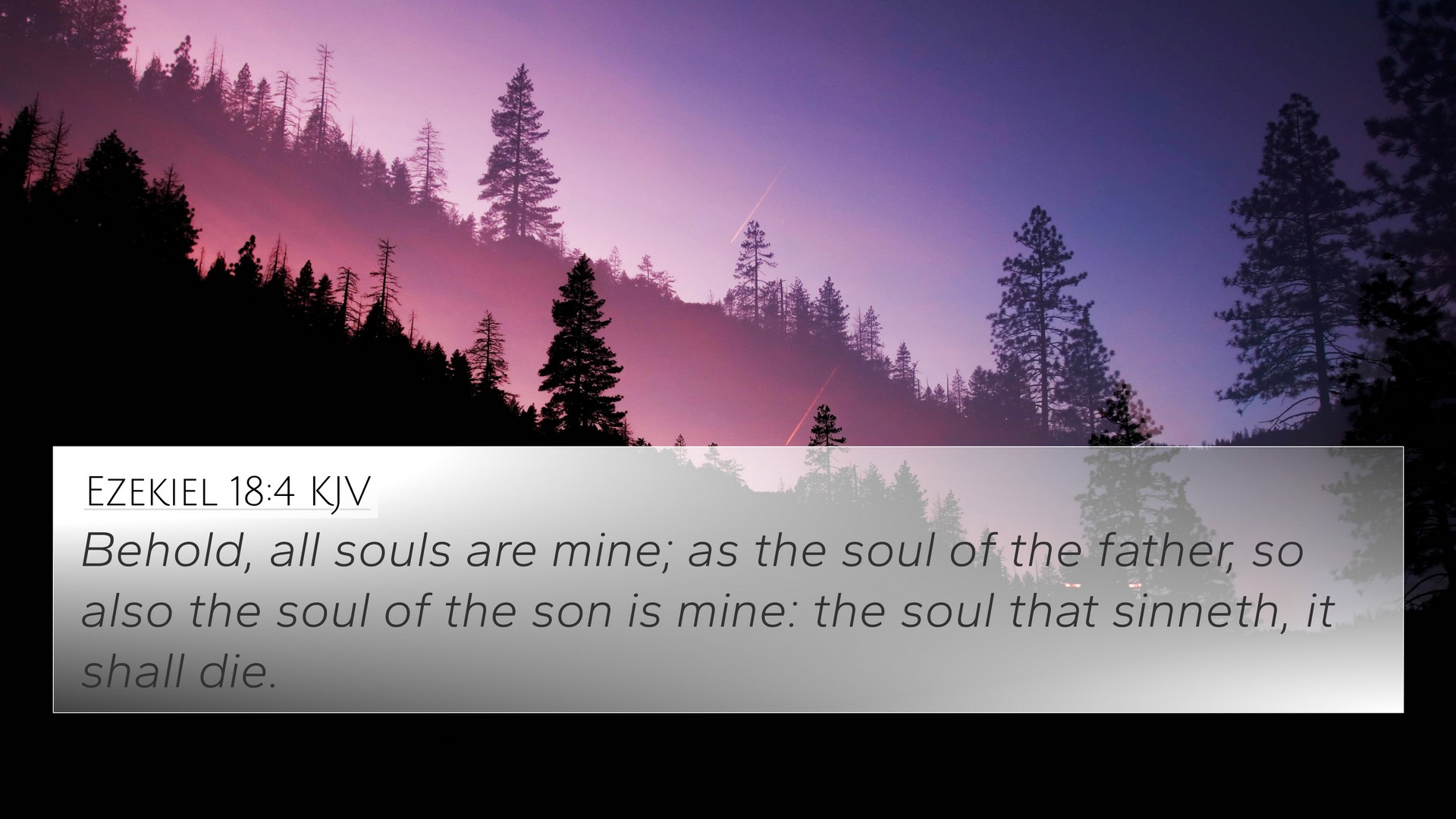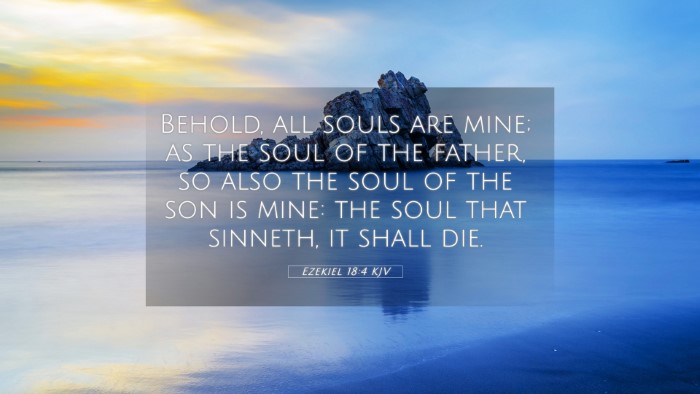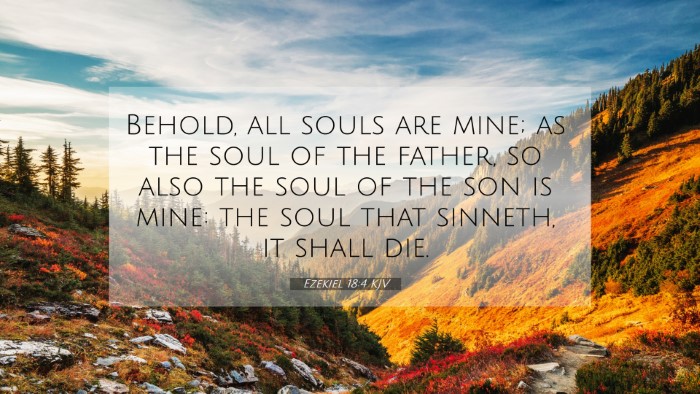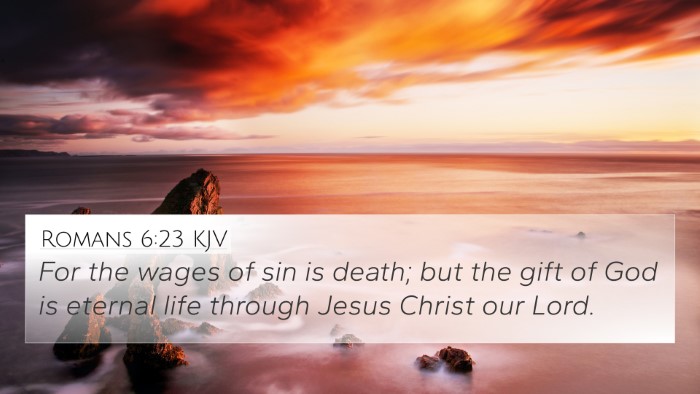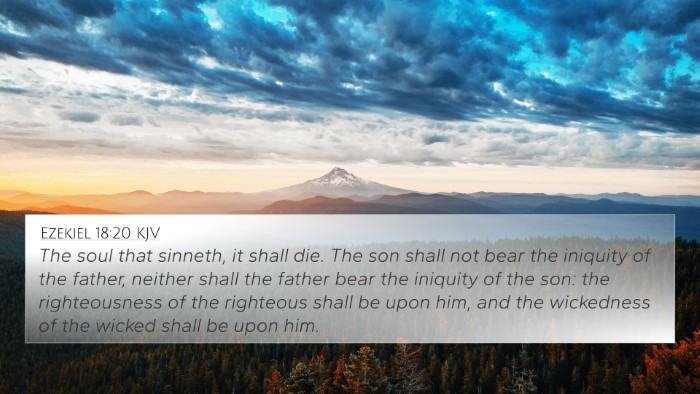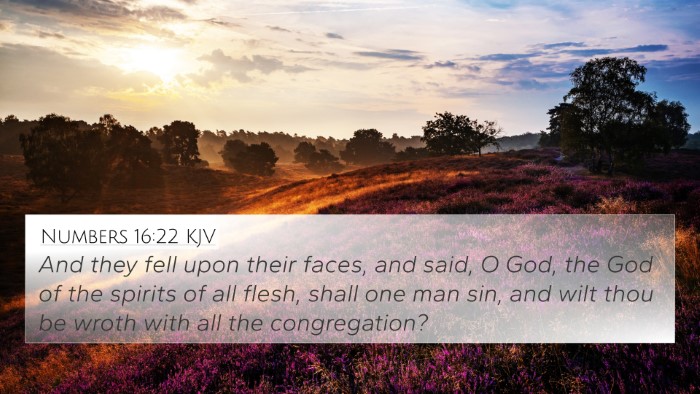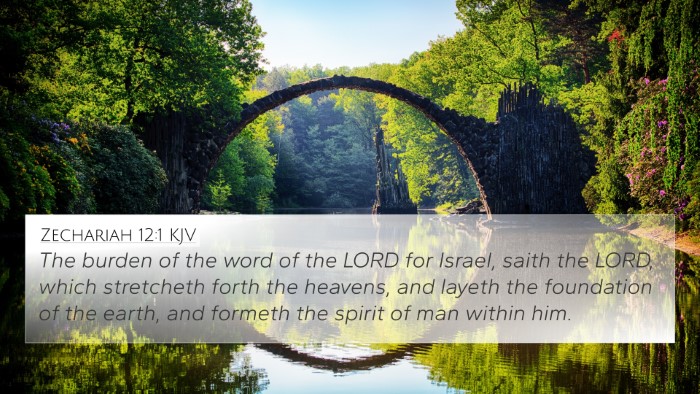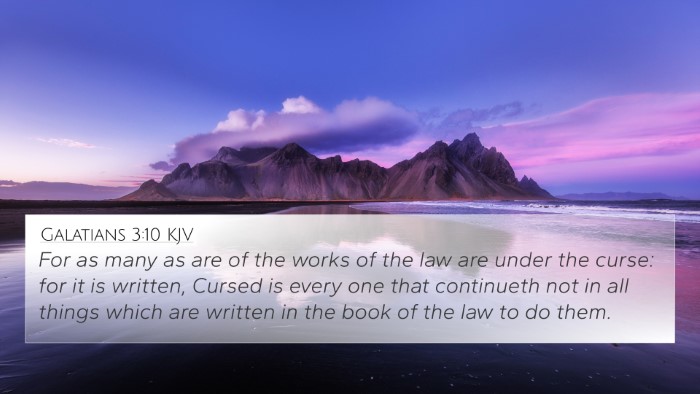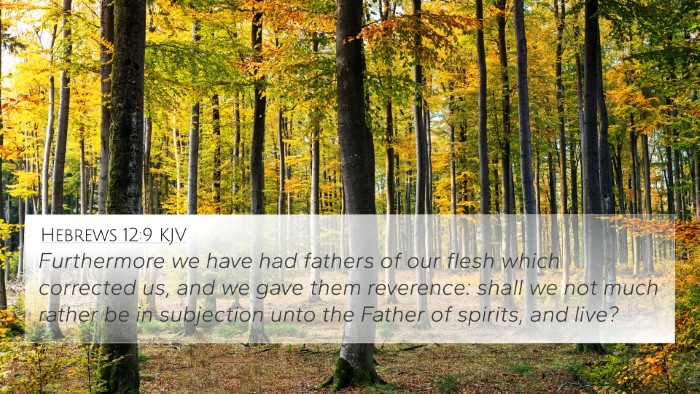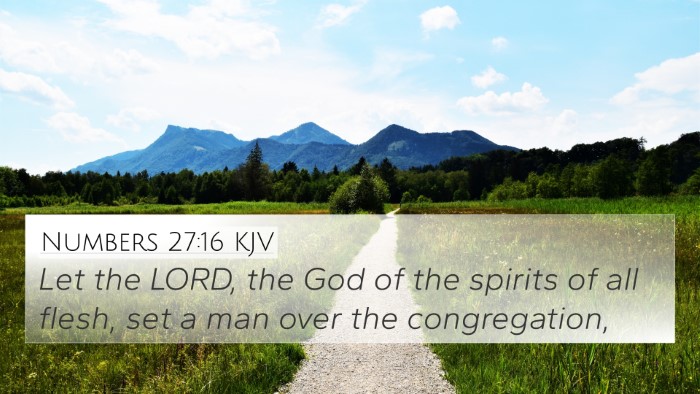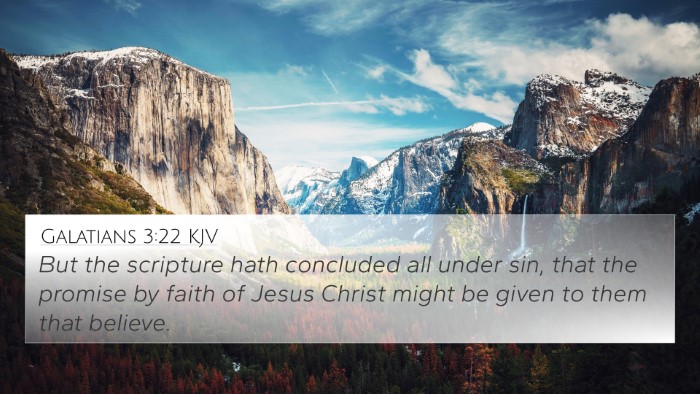Ezekiel 18:4 - Meaning and Interpretation
Ezekiel 18:4 states, "Behold, all souls are Mine; as the soul of the father, so also the soul of the son is Mine: the soul that sinneth, it shall die."
This verse serves as a profound declaration of God's sovereignty over all life and the personal responsibility of each individual to Him. In the broader context, it emphasizes that every soul belongs to God, affirming His authority and ownership over creation.
Summary of Insights from Public Domain Commentaries
-
Matthew Henry Commentary:
Henry explains that the phrase "all souls are Mine" underscores God's claim over every human being as their Creator. He emphasizes that both the father and the son are accountable to God for their actions, and therefore, the sinfulness of one cannot be blamed on the other. Each individual will face the consequences of their own decisions.
-
Albert Barnes Commentary:
Barnes notes that this verse puts forth the idea of individual accountability, indicating that transgression leads to death. He further clarifies that God does not punish children for the sins of their parents, establishing a principle of justice where each person is judged by their own deeds.
-
Adam Clarke Commentary:
Clarke interprets this verse as a foreshadowing of divine justice, highlighting the notion that it is not the corporate identity that leads to eternal separation from God, but personal actions. His remarks reveal that God’s will is for each soul to choose righteousness and that the consequences for sin are inevitable.
Key Themes in Ezekiel 18:4
-
Sovereignty of God:
The assertion that "all souls are Mine" emphasizes God's supreme authority and control over all life.
-
Individual Responsibility:
This verse insists on personal accountability, where each soul stands before God on its own merits, independent of familial sins.
-
Justice and Consequences of Sin:
The second part of the verse reinforces the idea that sin results in death, a serious matter that needs to be addressed by every individual.
Bible Verse Cross-References
Here are some related Bible verses that share thematic connections with Ezekiel 18:4:
- Romans 14:12: "So then each of us will give an account of himself to God."
- Galatians 6:5: "For each one shall bear his own load."
- Exodus 20:5: "I, the Lord your God, am a jealous God, visiting the iniquity of the fathers upon the children to the third and fourth generation of those who hate Me."
- Deuteronomy 24:16: "Fathers shall not be put to death for their children, nor shall children be put to death for their fathers; a person shall be put to death for his own sin."
- John 3:16: "For God so loved the world that He gave His only begotten Son, that whoever believes in Him should not perish but have everlasting life."
- Isaiah 53:6: "All we like sheep have gone astray; we have turned, every one, to his own way; and the Lord has laid on Him the iniquity of us all."
- Hebrews 9:27: "And as it is appointed for men to die once, but after this the judgment."
Comparative Bible Verse Analysis
When doing a comparative analysis of Ezekiel 18:4, it becomes evident how it aligns with several other scriptures. The focus on individual accountability can be seen in New Testament teachings where personal faith and conviction play critical roles in salvation.
-
Linking with Isaiah 1:18:
Both verses emphasize the need for personal repentance and accountability, urging individuals to consider their ways before God.
-
Connections with Revelation 20:12:
The idea of judgment conveyed in Ezekiel anticipates the final judgment described in Revelation, where all are judged according to their works.
Tools for Bible Cross-Referencing
To fully engage with the cross-references and connections found in the scripture, consider utilizing various tools:
- Bible Concordance: A helpful resource for locating specific verses and their connections.
- Cross-Reference Bible Study Guides: Manuals that outline relationships between verses for deeper understanding.
- Online Cross-Reference Tools: Digital resources that can quickly link you to verses with similar themes.
Conclusion
Ezekiel 18:4 is a powerful declaration that underscores God's sovereignty, the necessity of individual responsibility, and the ramifications of sin. Understanding this verse within its wider scriptural context enhances one’s grasp of the core messages of justice and accountability throughout the Bible. Engaging with various related scriptures through cross-referencing reveals the interconnectedness of biblical narratives and principles, providing a comprehensive insight into God’s nature and human responsibility.
